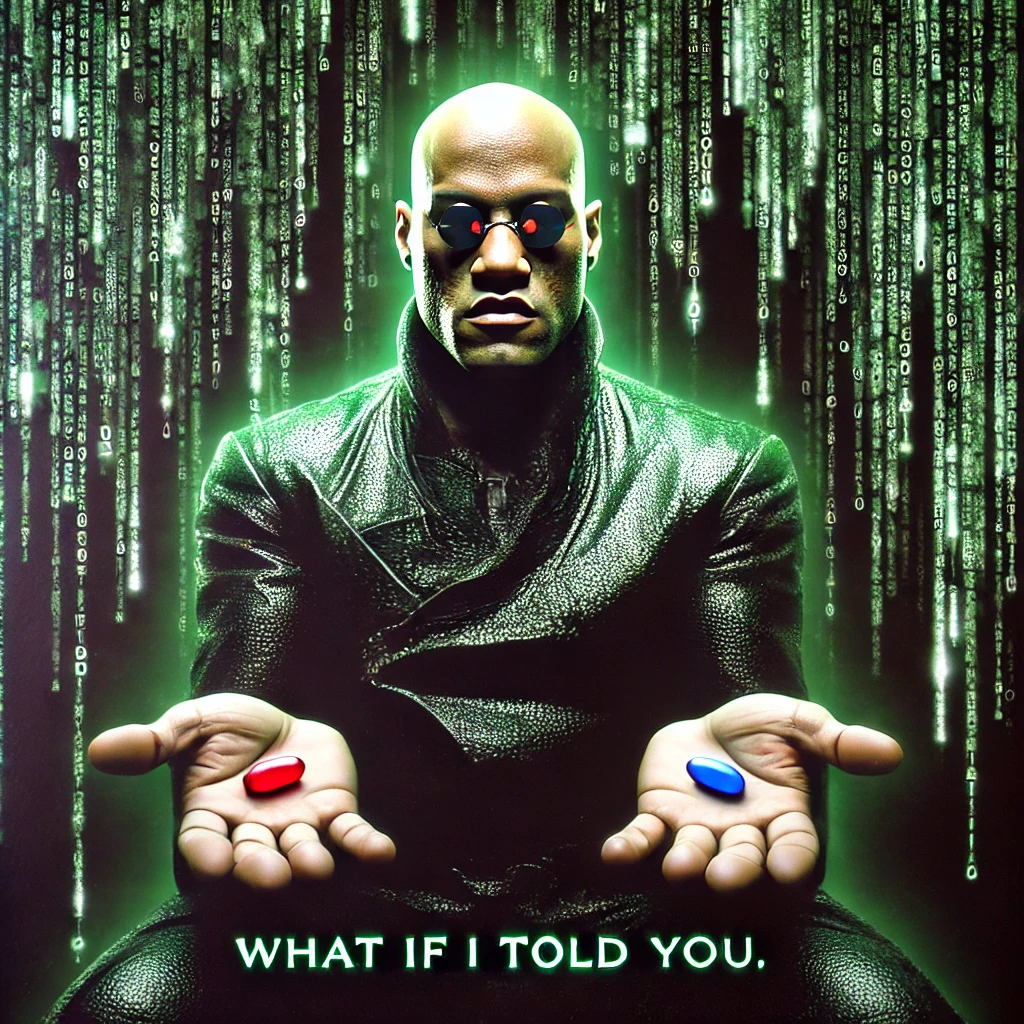Matrix – What if I Told You Mandela Effect

The Mandela Effect surrounding The Matrix has captivated audiences, particularly those who distinctly remember Morpheus saying the iconic line, “What if I told you everything you know is a lie.” For many, this line is deeply tied to two pivotal moments in the film: the red pill/blue pill scene and the red dress training simulation. This vivid recollection isn’t a vague impression—it’s a vivid and specific memory for many fans.
In the red pill/blue pill scene, Morpheus invites Neo to make a choice that will forever alter his understanding of reality. Viewers who claim to experience this Mandela Effect insist that Morpheus’s invitation to choose truth over illusion was accompanied by the phrase, “What if I told you everything you know is a lie.” They remember it as the line that perfectly encapsulates the gravity of Neo’s decision. Yet, when revisiting the film, this line is conspicuously absent. Morpheus then uses the phrases like, “You take the red pill—you stay in Wonderland, and I show you how deep the rabbit hole goes.”
The second usage of the line is remembered during the red dress training simulation. Here, Morpheus demonstrates how the Matrix manipulates perception to distract and control its inhabitants. Some fans distinctly recall Morpheus using a variation of the line: “What if I told you everything you thought you knew is a lie,” to underscore the illusionary nature of the simulated world. But again, no such line appears in the film. Instead, Morpheus explains how the Matrix operates as a tool of control without resorting to the memorable phrase so many believe they heard.
The Matrix thrives on the concept of deception, control, and alternate realities. Could the collective memory of this line—so perfectly suited to the film’s themes—be an extension of the illusion, a meta-commentary on how easily our perceptions are shaped and reshaped?
It mirrors the film’s central question: What is real, and how can we be certain of it? Perhaps the true message of this mysterious phrase is that the distraction, much like the Matrix itself, was always the point.
Using advanced AI technology, the famous “What If I Told You” lines from The Matrix (1999) were reconstructed to reflect what many fans remember experiencing in what they believe to be the original timeline, rather than what is currently shown in the movie. By analyzing collective recollections, the AI recreated these moments with precision, preserving the philosophical and emotional gravity associated with Morpheus’s iconic presence. In the AI-rebuilt version, during the red pill/blue pill scene, Morpheus delivers the line: “What if I told you everything you know is a lie,” perfectly encapsulating the existential dilemma central to Neo’s choice. Later, in the red dress training simulation, Morpheus underscores the deceptive nature of the Matrix by saying, “What if I told you everything you thought you knew is a lie,” amplifying the tutorial’s message about distraction and control.
These lines are not present in the currently available version of the movie, but they are a striking representation of how many fans remember the scenes in the original timeline. The AI has essentially reconstructed a version of the film that aligns with these shared memories, bridging the gap between what audiences recall and what exists on screen today. In doing so, it not only revitalizes the Mandela Effect conversation but also highlights the enduring impact of The Matrix as a cultural phenomenon that blurs the lines between reality and perception.
The Mandela Effect is speculated to result from time travel experiments by humans and the influence of non-human intelligences (NHI) interacting with our reality. Part of this phenomenon seems to have a sense of humor, subtly editing the historical record with changes—like altered movie lines or historical details—designed to nudge us toward noticing the edits. These playful shifts may serve as a wake-up call, preparing us for awareness of more profound or serious manipulations.
Human time travel experiments aim to manipulate space-time, with even minor changes potentially creating ripple effects that reshape collective memories. Similarly, NHIs with advanced technology might use time travel to observe or influence humanity, whether intentionally or as unintended byproducts of their actions. If these experiments are indeed altering timelines, the Mandela Effect may be a deliberate signal or unintended consequence of such manipulations, urging us to rethink our understanding of history, memory, and reality itself.
